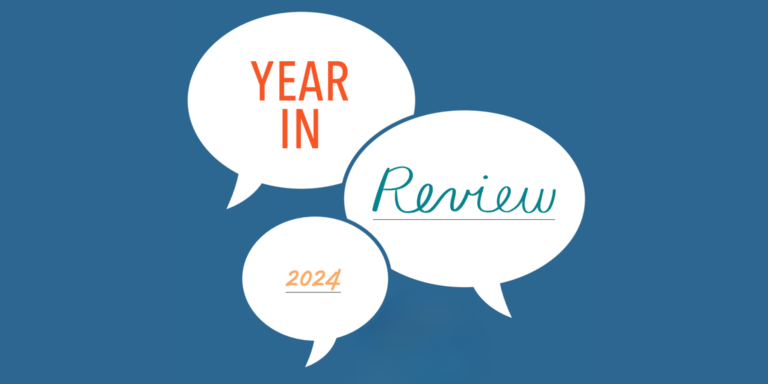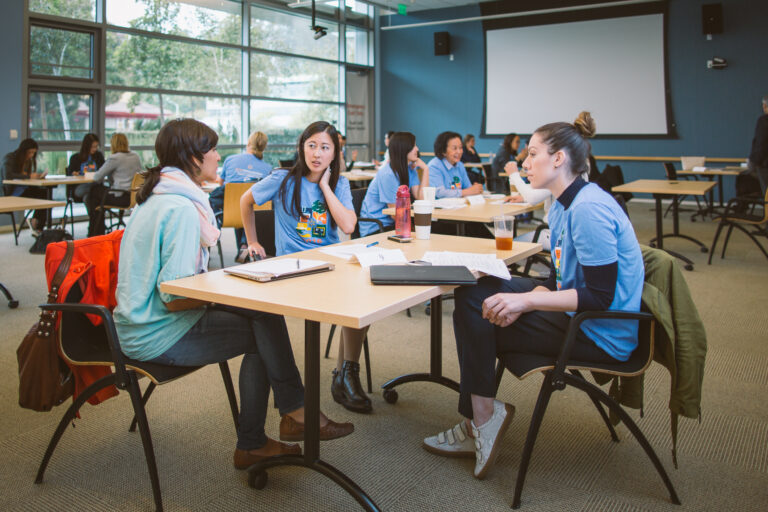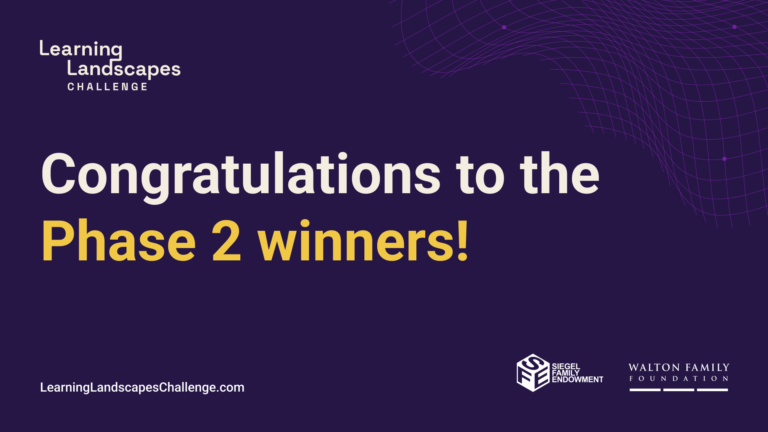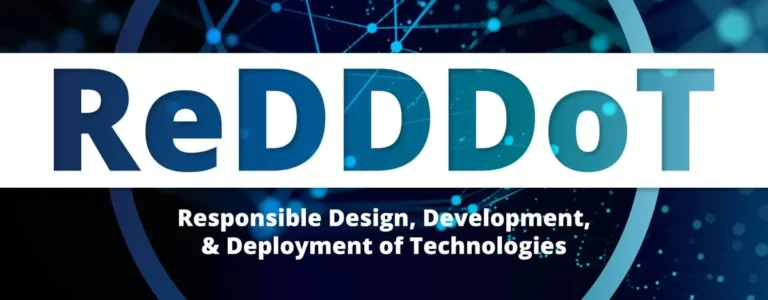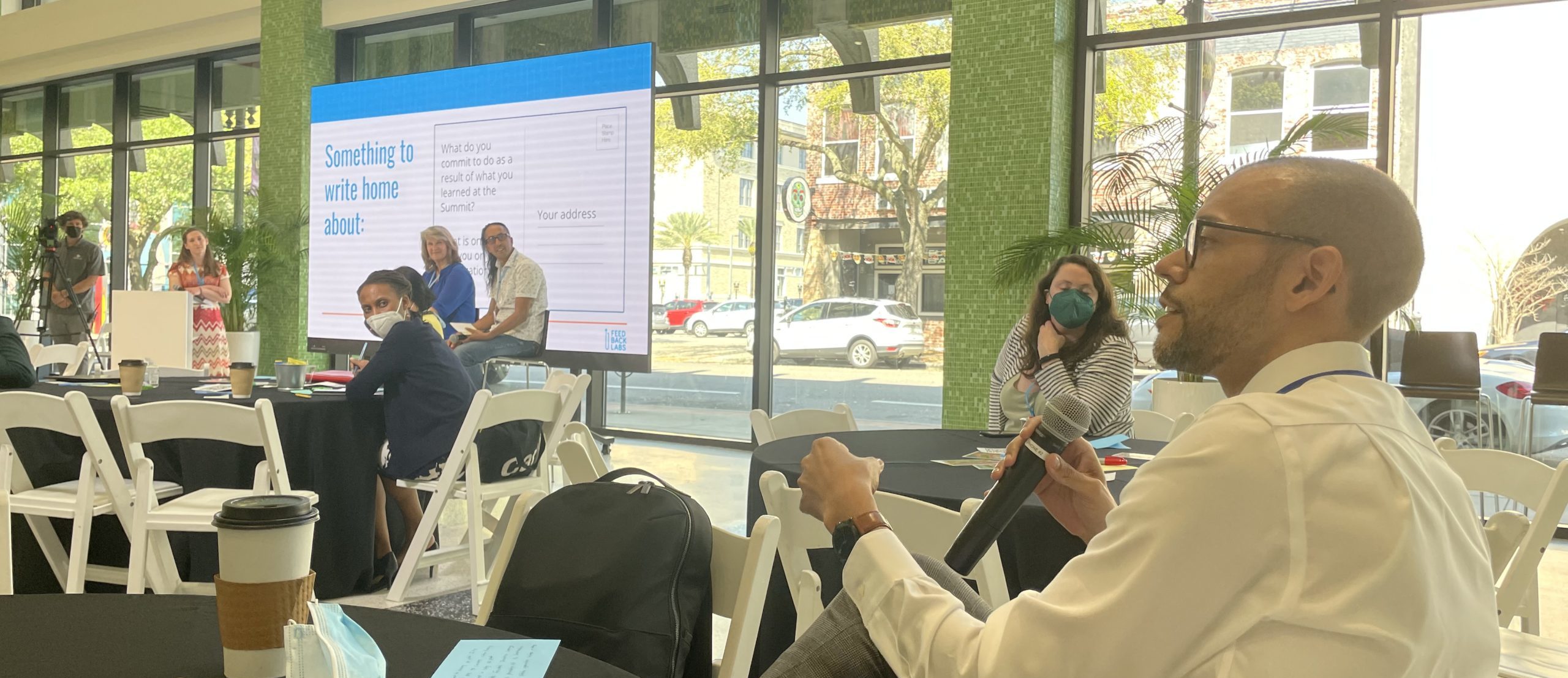
Gathering feedback may seem like a simple and straightforward enough task on its own, and many nonprofits and service-oriented organizations try to address feedback and inputs from their partners and clients. But making the most of these insights, and adopting practices that can strengthen relationships and outcomes for all parties, is more complex than it might seem, and requires a significant amount of consideration and strategic planning.
Last week, members of Siegel’s grantmaking team attended the 2022 Feedback+ Summit, hosted by our longtime grantee partner Feedback Labs. The conference brought together leaders and practitioners from government entities, nonprofits, philanthropy, and research to discuss their experiences and takeaways from implementing systems to gather and incorporate feedback from their constituents and partners. As ever, the takeaways from this event were multifaceted and illuminating, and shed light on the many ways that different kinds of organizations can be impacted by feedback and improved by meaningful feedback and input gathering processes.
We’ve gathered our top three lessons (out of many!) to share here. Make sure to follow @SiegelEndowment on Twitter for more granular takeaways from this conference and similar future events.
1. Closing feedback loops is a critical part of any relationship – especially for funders and grantees: Figuring out the best method for gathering feedback and insights from grantees and partners is only the first step in any meaningful feedback practice. It’s also important to communicate about how that feedback has been received and acted upon. Moving forward with implementing plans that are driven by partner feedback is always the end goal, but to do so without directly acknowledging the role that a partner has played in the development of that practice can lead to participants feeling shut out and not considered as fully as they might like to be. And the responsibility lies with the solicitor of feedback – in our case, us as funders – to communicate that back to our partners.
2. The ability to give candid, meaningful feedback is predicated entirely on strong relationships: As with many relationships, the funder-grantee relationship is bound up in power. And while we believe the dynamic can be moderated, it cannot be removed, and the onus is on us to make it more balanced. Creating an environment where grantees and partners feel like they can share their feelings safely, honestly, and openly is the cornerstone to any effective feedback relationship. Building these kinds of relationships takes time, and establishing the trust necessary to solicit meaningful open feedback is one of many reasons to prioritize transparency and trustworthiness in all aspects of external relationship management.
3. Funders have an opportunity to put feedback at the center of our data-driven metrics: Grantmakers have the unique ability to amplify certain messages about what their partners and grantees should prioritize in their work, and have the power to make decisions that can resonate across the entire field. Funders are already leaders in shaping how nonprofits and other organizations measure their output and success, and adding feedback to that list of metrics is an important part of advancing the conversation. Measuring the satisfaction of the audiences who receive or engage with certain services and programs is a critical component of program success, and deserves to get increasingly more attention.
Feedback is complex, and there’s no one size fits all solution. Determining how these kinds of insights get implemented in practice will take time, and constant iteration. Throughout the year, we will continue developing new methods for integrating this feedback to our own work, and finding opportunities to “close the loop” by sharing what actions we’ve taken. And as part of the Feedback Funders Incentives Learning Group, we’re excited to keep gathering new lessons from across the broader community of feedback practitioners and look for ways to incentivize others to listen.


